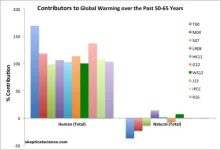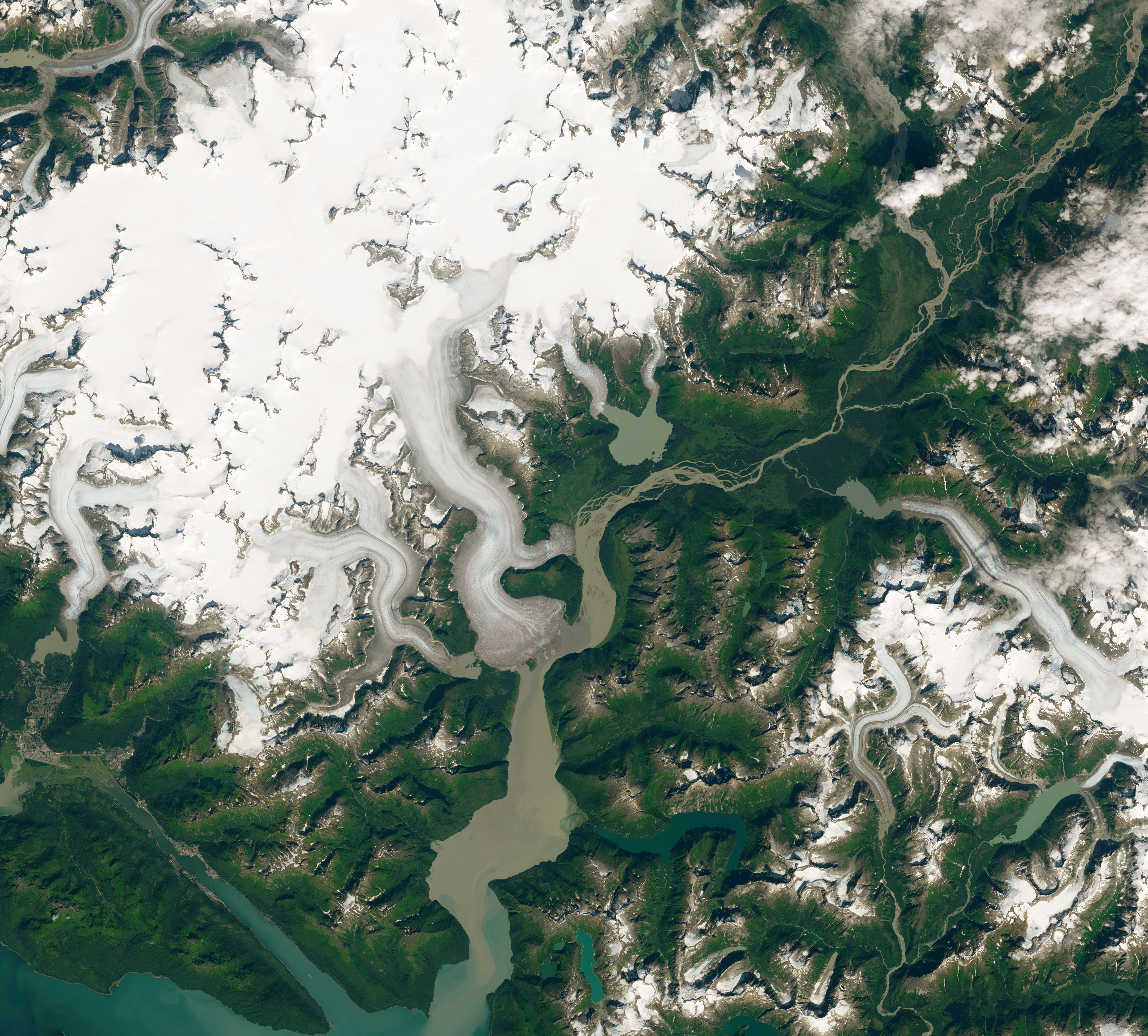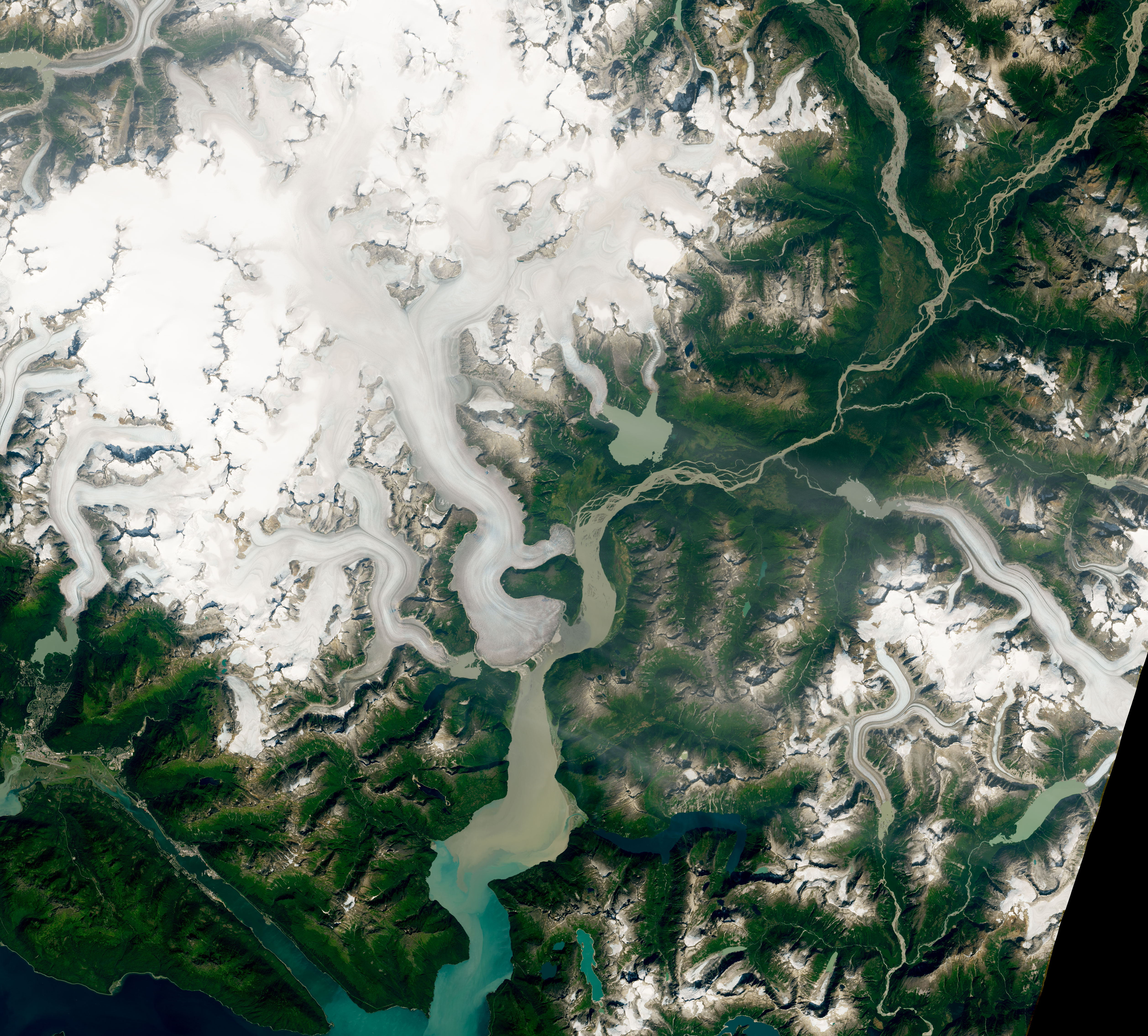The article […] is not a climate-change-denying paper. It is a paleoclimate paper showing, first, a new maximum temperature reconstruction for the last 400 years (including the current warming) and second, a new standardization method in dendrochronology to remove the non-climatic trend. The image in the post does not by any means reflect the message of the paper.[/B]
Does the existence of anthropogenic global warming require the pre-industrialized Iberian Peninsula to be unresponsive to volcanic and solar influences? Only if you are aggressively uninterested in trying to understand the science.
Straw Man Two: The concept of anthropogenic global warming requires every location on earth to respond to climatic variables in the same way.
A number of studies cited by both Breitbart and NTZ use records from a specific, narrow geographic location to suggest that the world as a whole is not warming. No reasonable climate scientist, however, would argue that this is the case, as Hausfather told us:
In fact, we expect different parts of the world to warm at different rates (e.g. land warming faster than oceans), and things like precipitation changes have distinct regional patterns. Similarly, not every year will be warmer than the last. Short-term variability driven by El Nino and La Nina cycles can have a big impact on individual year’s temperatures, though it averages out over longer time periods.
Jessica Conroy, whose paper investigating fluctuations in Monsoon precipitation on the Southern Tibetan Plateau was presented by Breitbart, also told us:
I do not agree with Breitbart’s assessment of my work. My paper does not discuss 20th century anthropogenic warming trends, but decadal to centennial variability in the monsoon precipitation of the southern Tibetan Plateau.
Such variability has the ability to amplify or attenuate anthropogenic trends in precipitation, and leads to greater uncertainty in projections of future precipitation change. It is certainly not evidence to use to claim that anthropogenic greenhouse gas emissions are not changing the climate
The study of past and present regional short term climatic variability is an active field within climatology. The finding that precipitation fluctuates in complicated and not fully understood ways that are both independent of, and related to, global warming is by no means proof that the world is not warming due to increased greenhouse emissions.
Straw Man Three: The evidence for anthropogenic global warming is entirely model-based
Many of the studies included in the NTZ suite of papers include critiques of or refinements to climate models. These studies generally highlight the fact that disagreements and flaws exist in the computer programs used to model an entire heterogeneous global system. NTZ and Breitbart present these studies in a way meant to imply that the reality of global warming is dependent on those models, which is wholly false, as Hausfather said:
Our understanding of the reality of global warming really doesn’t depend on climate models. Basic physics going back to the mid-1800s tells us that CO2 is a greenhouse gas, and increased atmospheric concentrations of CO2 will warm the Earth. While modern science has added lots of nuance like carbon cycle feedbacks, ice sheet dynamics, and other complexities of the Earth’s climate, the basics are pretty much unchanged.
A great example of this tactic uses a paper by Erica Rosenblum and Ian Eisenman that investigates problems computer models have in accurately predicting Arctic and Antarctic sea ice cover. While the paper may be an indictment of a particular aspect of a particular model, it is in no way an indictment of the reality of global warming.
Rosenblum told us that the sentences excerpted by Delingpole and NTZ actually came from basic introductory material that “our field already agreed on before we published this paper”:
Our paper certainly does not say that “global warming is a myth”. It does not say that “‘global warming’ — as in the big scare story that the planet is heating up at a catastrophic unprecedented rate because of man-made CO2 emissions — is bunk; or that the methods being used to combat the problem are bunk.”
Our main results showed that the models appear to be too conservative and simulate Arctic sea ice that is not sensitive enough to changes in global temperatures.
Refinements to climate models are not evidence of controversy among those who study climate science; instead, they are the heart of how these models are improved over time.



